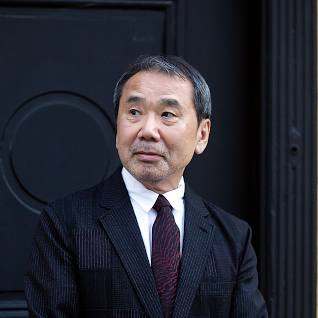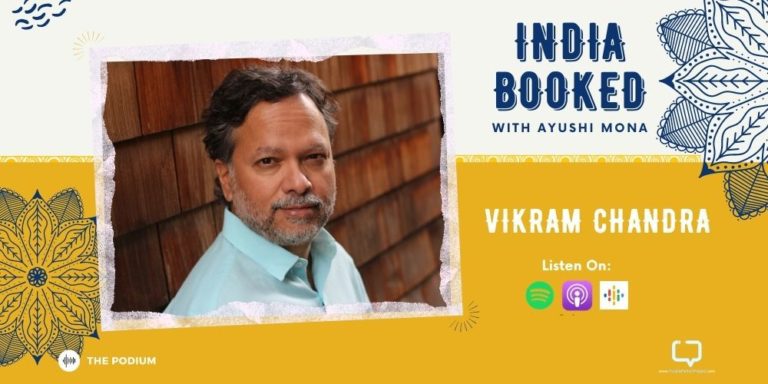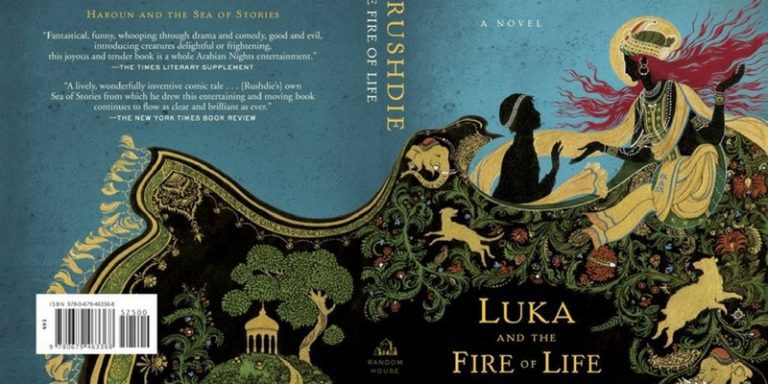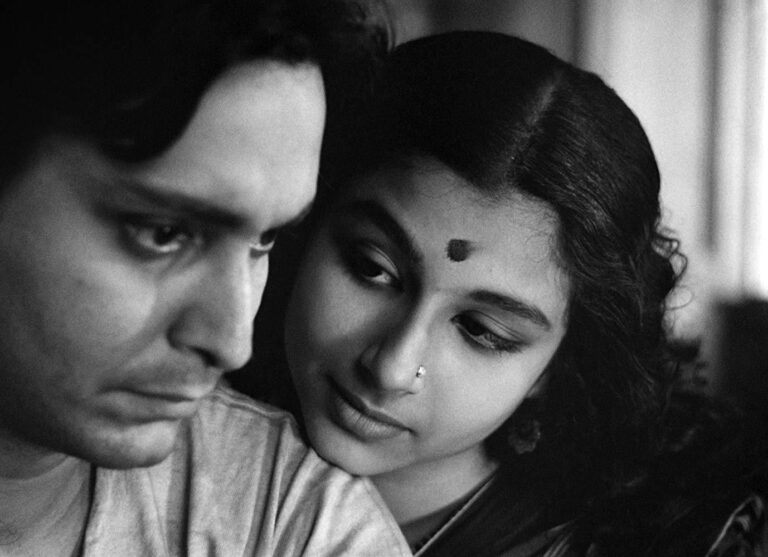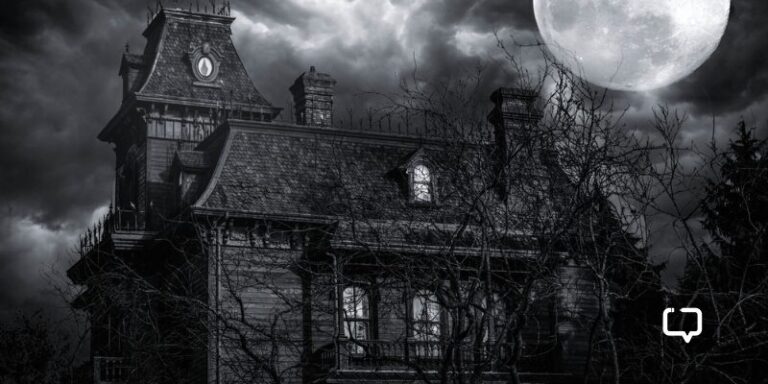In the mundane rut that are our professional and domestic routines, the universe finds its way to reassure us that it’s got our backs; a shuffle that plays your favourite songs, the hint that someone you like feels the same, the effortless way you and a dear friend share thoughts, a holiday on the very day you didn’t want to go to work. It’s a strange alchemy, how magical things tend to happen to us all the time. How is it that on the very day, you forgot to carry your umbrella, the skies decided to clear up? How is it that I, picked three books at random; The Great Gatsby and Norwegian Wood, and they happened to be so interconnected to each other? And that too right after I read Catcher in the Rye, another recurring work of literature in the Murakami book. I don’t think it’s a mere coincidence, I think it’s part of literature’s hidden propaganda, and I am not complaining.
We encourage you to buy books from a local bookstore. If that is not possible, please use the links on the page and support us. Thank you.
Many parallels have been drawn between J. Gatsby and Toru Watanabe, the respective ‘heroes’ of Gatsby and Norwegian Wood. It doesn’t come exactly as a surprise. Murakami has long been known to be heavily influenced by the American culture and is only befitting that one of his most emotionally powerful works draws on the American classic. Yet to me, Toru resembles Nick Carraway more, circumstantially.
Nick, a new youngster in the city, struggles to navigate his way through a strange, populated life and crosses paths with some of New Long Island’s strangest people, becoming privy to a love story of the elite while his own relationship with Jordan Baker is complicated at its best, and sees people around him die when they shouldn’t. Like Nick, Toru is a secret keeper, and everyone finds it safe to pour their hearts out to him. Daisy, Jordan and even J. Yes, they are related, unlike the curious set of Toru, Naoko, Kizuki, Midori and Reiko but the relationships should be looked beyond familial bonds alone.
Norwegian Wood is set in the Tokyo of the 1960s and over it hovers the same sense of purposelessness that Fitzgerald so starkly brings out in the Americas of the 1920s. Toru loses his best friend Kizuki to suicide and comes far from his hometown of Kobe to pursue a University education in Tokyo. He bumps into and falls in love with Kizuki’s girlfriend Naoko. What ensues is one of the most poignant love stories to have been written. Naoko is ‘ill’, living in emotional extremes. To treat herself, she goes to an unusual hospital in the mountains, where healing comes through sharing, talking and cutting off from the rest of the world. During the time, Toru bumps into Midori Kobayashi, a girl from his History of Drama Class and falls in love with her. The question remains; will he wait for Naoko or move on with Midori?
Reading Murakami is not easy. Like his characters, the emotions drain you as much as they engross you and resonate with you. The very quality which draws you into the book in fullness and makes you remember every tiny detail of it, is also why you are just one thing when Naoko finally decides to end her life too; empty.
With Gatsby, you feel terrible for J. and you wonder if any human relationship is worth saving; but never does it quite drain you. Shatter the American aspirations for materialistic success and possession and the potency of that pursuit to bring any real happiness, yes, but nothing more.
I read Norwegian Wood in peak traffic hours when the Indian streets with their idiosyncratic honking would’ve otherwise given me a headache. But so drawn I was into the world of Kobe to Tokyo, so vivid was the imagery of the long walks that Toru and Naoko took that not once was I perturbed with my own surroundings. That’s not a magic Gatsby can weave.
Murakami once said that a lot of his critics accuse ‘Norwegian Wood’ of being ‘just another love story’. A guy tries to find meaning in a world where he is growing old without his dearest friend even as he tries to establish new friendships and relationships, at the brim of the past and the future, where the choice is his. Much like Daisy chooses to stay with Tom Buchanan, Toru must make a choice to stay with Midori or wait for Naoko. Gatsby was killed because of Daisy, and Naoko kills herself. Jordan chose to not be with Carraway. Toru chose Midori.
I think Murakami is just trying to right the decreasing value of love in the American 20s. But why do Naoko and Kizuki and Hatsumi kill themselves? Why does Toru come to interact with all of them? When Toru chooses Midori, he chooses to keep something alive within him and the struggle it takes to cut away from the past to step into the future is the struggle you see played out through long walks, coffee, lunches, countless songs and records of Miles Davis and The Beatles and Bach and Mozart, and a sense of detached, perverted reality.
Murakami writes with a basic language – not simple, not lay. Not basic as in uncultured. But basic that it leaves you raw. This same style makes The Strange Library a good read but lacks utterly in After the Quake (I am yet to read the rest, but if you’re looking for an answer, Kafka on the Shore and 1Q84 should be definitely on your reading radar). But reading a Murakami book just about means you cannot read anybody else, at least for a while. Pick up the book if you have someone to cuddle with the moment you are done. These words will make your soul bleed and nothing but human touch will refill you.
___________________________________________________________________
Here are the lyrics of Norwegian Wood, by the Beatles. The song speaks more than I ever could. I just needed to rant about how hauntingly beautiful Murakami is.
“Norwegian Wood (This Bird Has Flown)”
I once had a girl, or should I say, she once had me
She showed me her room, isn’t it good, norwegian wood?
She asked me to stay and she told me to sit anywhere
So I looked around and I noticed there wasn’t a chair
I sat on the rug, biding my time, drinking her wine
We talked until two and then she said, “It’s time for bed”
She told me she worked in the morning and started to laugh
I told her I didn’t and crawled off to sleep in the bath
And when I awoke I was alone, this bird had flown
So I lit a fire, isn’t it good, norwegian wood?
Favourite Quote: “And just as Naoko and I shared the dead Kizuki, Reiko and I shared the dead Naoko.”
Recommended Age Group: No one below 21. It is emotionally draining and you should have had a few romantic adventures of your own before you embark on this.
Final Verdict: Hardback, bitches! And then wait for a signed anniversary edition and buy that too
Sakhi is a student of literature, an aspiring writer and a partner at www.purplepencilproject.com. She has a degree in journalism and is pursuing her master’s from Mithibai, Mumbai. This post was first published on The Unread Bookshelf.
*Feature Image Courtesy: Dear Reader.








